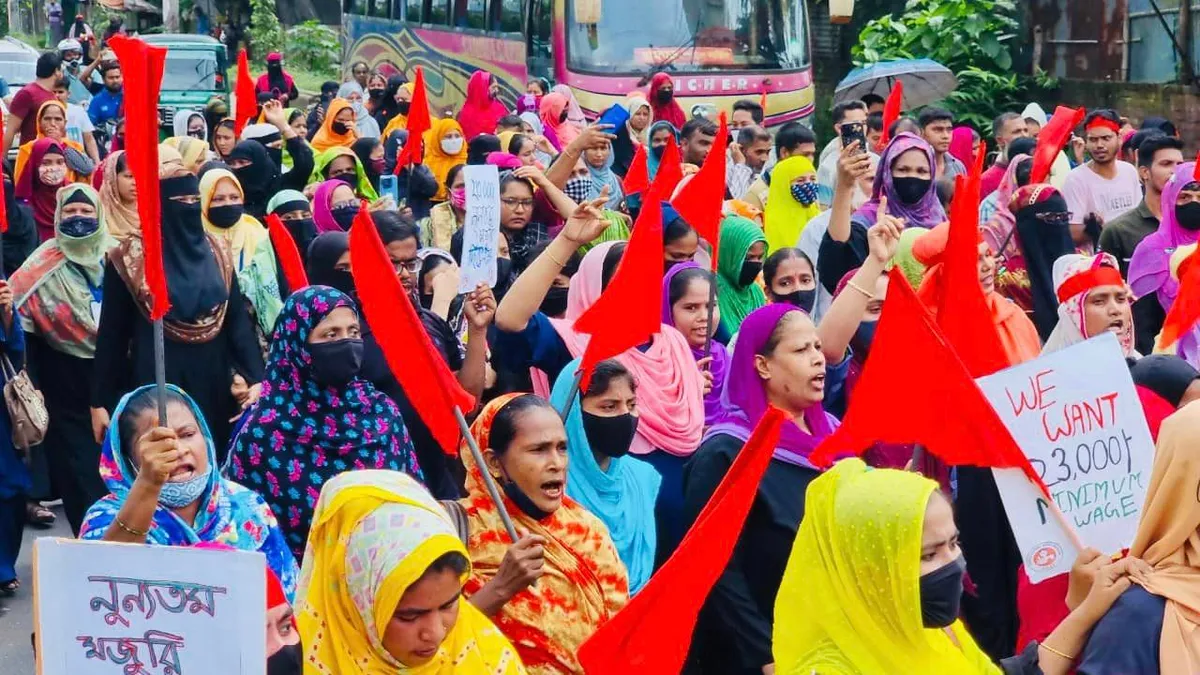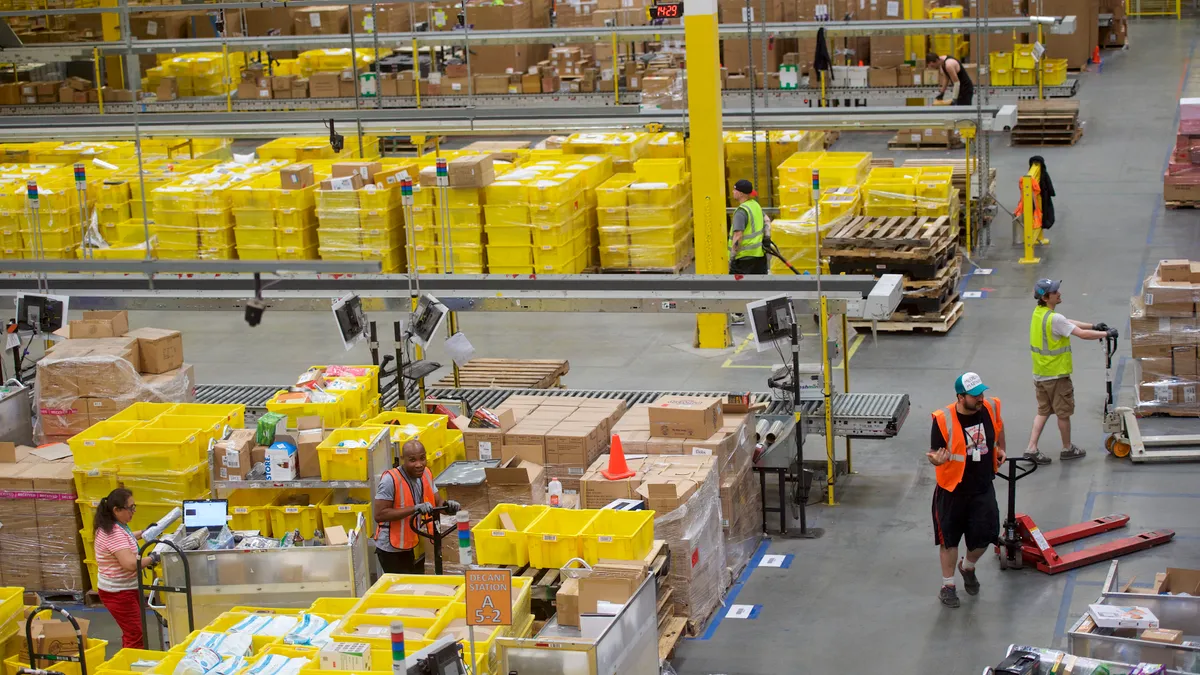Dive Brief:
- A group of U.S. lawmakers has written a letter calling on the American Apparel & Footwear Association to support the demands of Bangladesh’s garment workers for a minimum wage increase.
- The group, led by Democrats Rep. Ilhan Omar, Jim McGovern and Jan Schakowsky, asked U.S. brands to use their influence to “stand together with workers by immediately demanding better wages and rights for Bangladeshi working families,” per a release from Omar’s office.
- The lawmakers further call on AAFA members to commit to long-term sourcing relationships with suppliers; increase their purchasing prices to absorb additional labor costs; show transparency and accountability in their business operations and supply chain member companies; and use their leverage with factory owners to ensure workers are paid in spite of factory closures.
Dive Insight:
The government of Bangladesh approved a raised wage for garment sector workers in November, following a week of protests after the government missed its initial deadline to make a decision on the wage.
Garment workers sought a minimum wage of 23,000 taka per month, or about $208 at current exchange rates. However, the decision set the wage at 12,500 taka per month, a raise from 8,000 taka, which began Dec. 1. The decision additionally allowed a 5% annual increment, per Reuters.
The letter, addressed to AAFA president Stephen Lamar, states that the current wage won’t meet the country’s rising cost of living.
“Due to their significant presence and operational leverage in Bangladesh, we believe that AAFA member companies are strongly positioned to support workers’ petitions for livable wages and to vocally champion their labor rights in a key country for the global apparel industry,” the letter states. “The escalating repression that Bangladeshi workers are enduring underscores the urgent need for transformative, systemic reform — a call to action that U.S. corporations must heed.”
AAFA is a trade association with more than 1,000 members in the fashion industry, representing apparel, footwear and other sewn products companies, as well as suppliers. Members include Adidas, Abercrombie & Fitch, Calvin Klein and Designer Brands, among others.
Some AAFA members signed a letter in October about the wage, including Lululemon, Adidas and Gap. In July, AAFA sent a similar letter to Bangladesh’s prime minister highlighting the need for “urgent action” for the welfare of garment workers, especially regarding the minimum wage.
The lawmakers wrote that they were encouraged by several U.S. brands supporting an increased wage, but said in the letter “words are not enough.”
Nate Herman, senior vice president of policy for AAFA, said in an email that the organization was pleased to see members of congress join AAFA’s efforts in seeking better working conditions in Bangladesh.
“AAFA and our members have been at the forefront of efforts to secure real increases to wage levels and reforms to the process to make sure this structure gets updated annually — and recommend that this process is reviewed annually — so that Bangladeshi workers are not disadvantaged by changing macroeconomic conditions,” Herman said. “As we and our members have continuously reiterated, we are committed to responsible purchasing practices to support the wage increases. Moreover, we continue to urge that the Government of Bangladesh continue to partner with all parties to ensure an environment that fosters workers’ rights, worker welfare, and inclusive and peaceful multi-stakeholder dialogue.”
The letter from lawmakers additionally addressed the protests that surrounded the wage board’s November decision. The group said they “echo the Biden administration’s call for the government of Bangladesh to respect and protect workers’ rights to organize, protest peacefully, and collectively bargain without fear of retaliation, violence, or intimidation.”
AAFA also condemned the violence in the protests in its email to Fashion Dive.
The Bangladesh government formed the wage board regarding garment workers in April of this year, and it held its first meeting in May.
Bangladesh is the second largest exporter of readymade garments, and the industry contributes more than 11% to the country’s overall GDP, according to data from advocacy organization Asia Floor Wage Alliance.
“A responsible and competitive Bangladeshi apparel industry — one that involves peaceful and good faith participation from all stakeholders and that supports economic opportunity — continues to remain an important part of the global fashion industry,” Herman said.
















